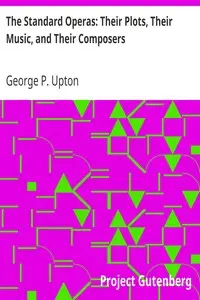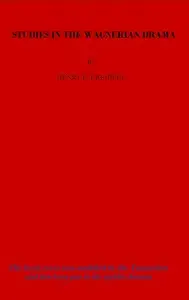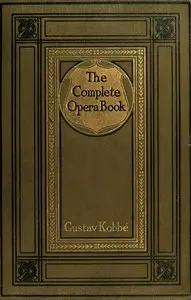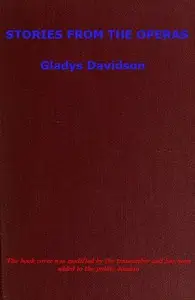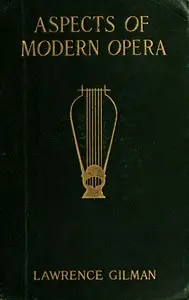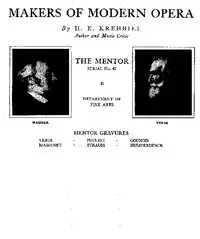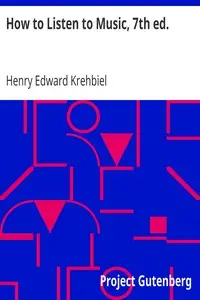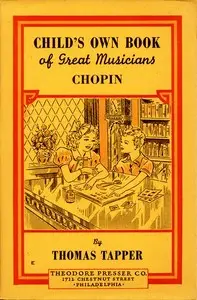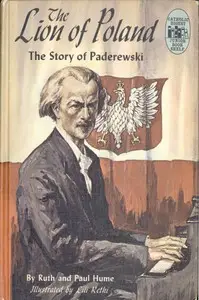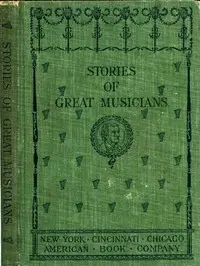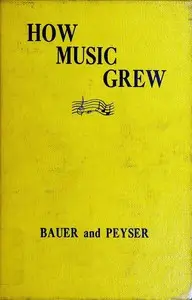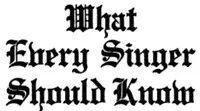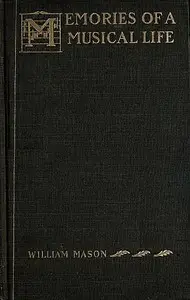"A Second Book of Operas" by Henry Edward Krehbiel examines operas, particularly those inspired by Biblical stories. Written in the late 1800s, the book investigates operas and oratorios, exploring their connection to Biblical stories and how composers creatively changed the source material for the stage. Beginning with the challenges of censorship and audience tastes, Krehbiel discusses works like Gounod's "Reine de Saba," showing how titles and content change from their original stories to fit cultural norms. Krehbiel also looks at the connection between music and story in operas such as Handel's "Mose in Egitto" and Saint-Saens's "Samson et Dalila," focusing on both the artistic quality and how well they stay true to the original Biblical texts. The book presents Krehbiel's understanding of the relationship between dramatic presentation and musical composition and sets the stage for a deeper look at specific operas in later chapters.

A Second Book of Operas
By Henry Edward Krehbiel
Explore how composers in prior centuries transformed sacred Biblical stories into captivating operas, skillfully navigating censorship and cultural expectations to bring these powerful narratives to the stage.
Summary
About the AuthorHenry Edward Krehbiel was an American music critic and musicologist who was the chief music critic of The New York Tribune for more than forty years. Along with his contemporaries Richard Aldrich, Henry Theophilus Finck, W.J. Henderson and James Huneker, Krehbiel is considered part of the 'Old Guard', a group of leading New York–based music critics who first established a uniquely American school of criticism. A critic with a strong bend towards empiricism, he frequently sought out first hand experiences, accounts and primary sources when writing; drawing his own conclusions rather than looking to what other writers had already written. A meliorist, Krehbiel believed that the role of criticism was largely to support music that uplifted the human spirit and intellect, and that criticism should serve not only as a means of taste making but also as a mode to educate the public. His book How to Listen to Music was widely used as an instructional guide by the music consuming public in the United States during the last years of the 19th century and first several decades of the 20th century.
Henry Edward Krehbiel was an American music critic and musicologist who was the chief music critic of The New York Tribune for more than forty years. Along with his contemporaries Richard Aldrich, Henry Theophilus Finck, W.J. Henderson and James Huneker, Krehbiel is considered part of the 'Old Guard', a group of leading New York–based music critics who first established a uniquely American school of criticism. A critic with a strong bend towards empiricism, he frequently sought out first hand experiences, accounts and primary sources when writing; drawing his own conclusions rather than looking to what other writers had already written. A meliorist, Krehbiel believed that the role of criticism was largely to support music that uplifted the human spirit and intellect, and that criticism should serve not only as a means of taste making but also as a mode to educate the public. His book How to Listen to Music was widely used as an instructional guide by the music consuming public in the United States during the last years of the 19th century and first several decades of the 20th century.

